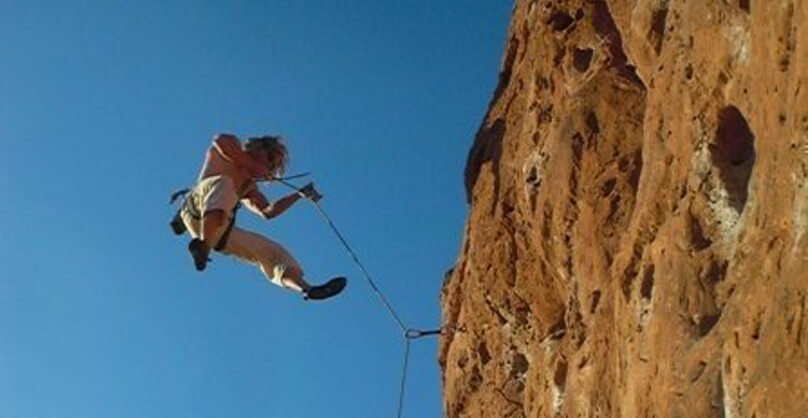Go to any rock gym or climbing wall and you will find people standing around staring at the wall. They look like they are taking a break or are maybe tired, but if you look closer, you will discover they are analyzing the problem they want to solve. This is because once you are on the wall, you no longer have the right perspective to see the entire problem.
You are simply too close…
I find this is often the case when people are evaluating other people for employee reviews or hiring criteria. They are trying to analysis their path on the wall, rather than taking a step back to see the bigger picture.
Introvert vs Extrovert vs what other “vert” you decide is important
A classic case of being too close to the problem in hiring is based on your perception of a leader. We hear it all of the time that people want a leader who is social, outgoing, energetic, or lively. The idea that you must be these things in order to be a “people person” or to really be a “doer.” Haven’t you heard the phrases? “I want a real mover and shaker” or “We need someone with a strong energy about them. Someone who can really motivate people.”
I helped a climber one day who was a very serious bodybuilder. His arms looked like knotted bread. He thought he would be great at this sport because it was a strength sport. Yet over and over again he failed at even the most beginner climbs.
His failure was a result of having no balance or analytical skills. He thought he could merely power through on strength alone.
Just like strength needs to correlate with balance and skill, so does character. Because it’s not so much about what you have as much as it is what you do with it. The charisma of the extrovert is useless without the sensitivity of the introvert. Being social is useless if you also have no focus. Being shy is detrimental if you actually cannot talk with people which is just as bad as being so loud you never hear people.
Obviously, I’m making some generalizations, but you get the point.
Whether you are hiring or evaluating, stop looking at the category and start looking at the whole person.
Years of Experience
This is a standard hiring category for most jobs in the world. It is an averaging of the number of years we would expect to see a certain level of mastery. Yet, more and more research is coming out that this average is not predictive of mastery.
Let’s say you have someone who gains mastery in 1 year and another who takes 4 years. Suddenly, you have an average target of 2.5 years. Based on this average, let’s say you decide a min of 2 years experience is required for the next level position. The overt downfall is that you are now missing out on all of those people who mastered the job in 1 year and only are considering candidates who took more than twice as long to achieve the same thing.
Rather than focusing how long someone should have reasonably learned a skill, start focusing on what they actually learned. This is the foundation of a good interview.
Context Matters
One of the most interesting parts of rock climbing is the order of the individual holds. I was helping a new climber the other day who kept falling in the same place over and over. Her issue was that she thought the next move was easiest to grab with her right hand, and this was true. But the move after was impossible for the left hand. She didn’t look at the entire route, she was trying to analysis one move at a time. While she mastered getting herself in a position for her right hand, she needed to master getting her left hand in order to move forward.
By taking a step back to look at the direction she needed to go, it was clear what she then needed to do.
This same issue exists in hiring. If you hire based on the need right in front of you, maybe you found someone headed in the right direction and maybe not. If not, then you are suddenly stuck because you didn’t make a move to help you achieve your target direction.
This means making decisions for today are not always the right decisions for tomorrow or a year from now.
Like businesses, rock climbers have the goal to get to the top. The journey up is difficult, often perplexing, littered with loose rocks and falls. Many, many falls.
So next time you are about to climb the wall, take a step back and look at the direction you need to go.

